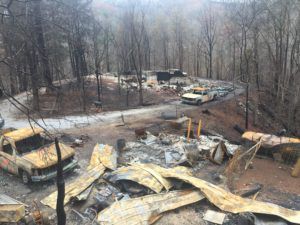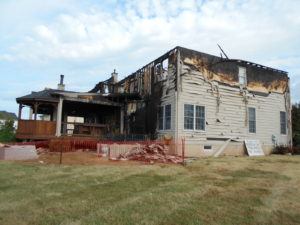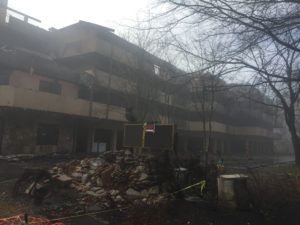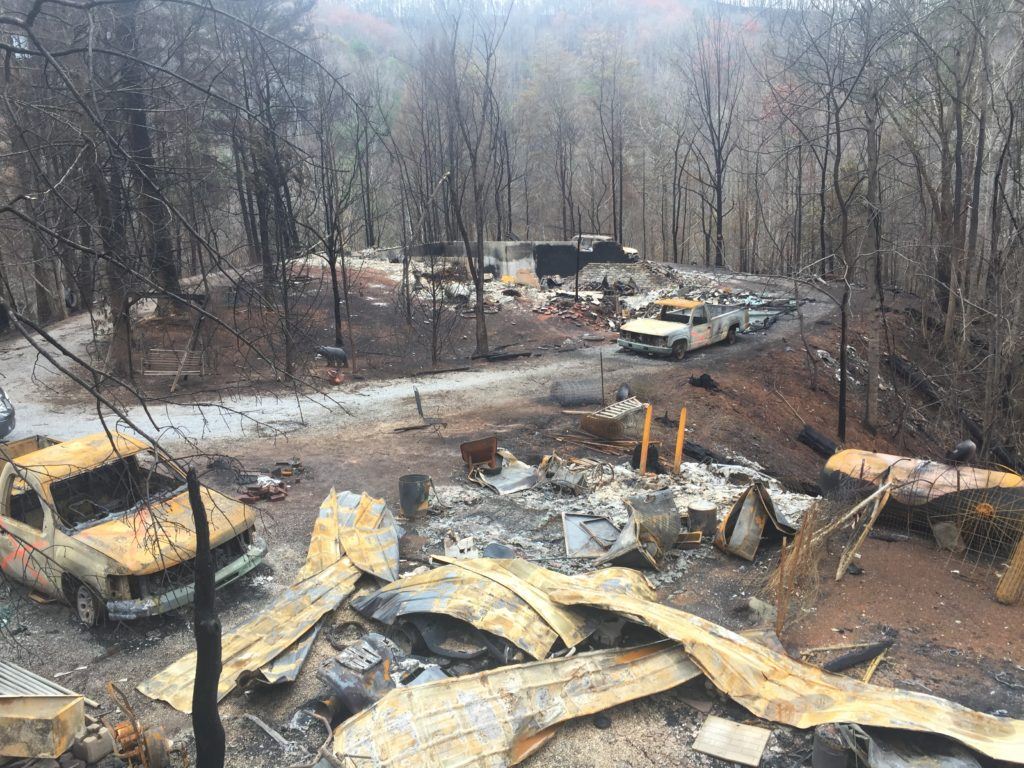Residents and tourists were unprepared for a devastating wildfire that whipped through Gatlinburg, Tenn., last fall. Winds topping 87 miles per hour fanned the flames that began in the Smoky Mountains and quickly spread through the mountain town, destroying homes and killing three.
William Lee, Enservio project manager was assigned to handle property inventories and valuations resulting from the wildfire. His story is a personal one since he spent his childhood in the area and still has family that reside there.
“I was born and raised in Hamblen, which is about 25 miles from the Smoky Mountains. It’s in the valley. We grew up in those mountains all of our lives,” said Lee.
A property/casualty adjuster for the past seven years, he arrived less than a day after the fire began and while it was still burning, he said.

“There were still trees smoldering. We were there probably…14 to 22 hours after they got some of it controlled. While we were still up there…I could get into a lot of places due to me being from that area,” said Lee.
He expressed considerable emotion as he described his arrival to the area and the very different scene than he had grown up with. Lee, who has been with Enservio for two and half years, explained that he controlled his emotions and maintained his composure in the interest of doing his job.
“Seeing that devastation, and going in there day in and day out, it affected me tenfold. I was going in there, seeing my history burned to the ground and going out to eat afterwards. It was a shock,” Lee said. “When I’m sitting down with my insureds and they’ve lost family, loved ones, animals, and all their property, I really tried not to make it more about my emotions. I was there really trying to focus on their emotions.”

While on the month and a half assignment, he handled 14 residential and commercial property claims, including one for a property owner that lost 100 condo units, he explained. The claims involved complete recreation as documentation no longer existed.
“A lot of time goes into recreations, because you have no visuals to go off of. It’s a muscle memory exercise,” Lee said. “To sit with an insured and have them sit there and talk about everything they lost, is one of the hardest things that any…adjuster will ever have to do in their life. They’re very heartbroken. They’ve lost everything. You’re just trying to sit there, be patient and do things in doses, two hours here, two hours there.”
Lee said there were so many claims he often lost track of time, working 10 to 14 hour days.
He shared some of the stories of the people he encountered. One individual collected CB radios, he said.
“He had probably $40,000 worth of CB radios,” Lee said. “He remembered every single model number dating back to the 1980s. That was amazing to me.”
Another wildfire victim, an elderly woman, wrote her list of belongings in cursive handwriting virtually telling the story of her life, he said.
Another woman invited seven homeless people to stay with her family. Each time she discussed an item that was lost in the fire, she would lose her composure and cry, he said.
“To see their morale even afterwards was strengthening for me. Some of the people, they had a tougher time. They lost, like I said, loved ones or they lost animals. Those were the most difficult. Even then, those people in the Smoky Mountains, they stayed very strong,” Lee said.
The experience has stayed with him and changed his mindset, he said. Seeing his once idyllic hometown turned into a vast wasteland has hardened him, he said.
“I never thought that I would see something that I had grown up enjoying my whole life…decimated, and just vast wasteland. It looked like bombs had dropped in the mountains and just took away everything that I had grown to love,” Lee said.

He offered some tips to adjusters who may find themselves handling a catastrophic loss for the first time. First, adjusters need to understand that every claim, situation and insured is different, he said.
“Now…I really can relate to my insureds on a whole other level,” Lee added.
He said he responds more empathetically when handling catastrophic claims now.
“The thing that works best for me when I have insureds who have lost everything is patience, understanding and really showing a genuine care for them,” Lee said.
Was this article valuable?
Here are more articles you may enjoy.


 Elon Musk Alone Can’t Explain Tesla’s Owner Exodus
Elon Musk Alone Can’t Explain Tesla’s Owner Exodus  Tesla Sued Over Crash That Trapped, Killed Massachusetts Driver
Tesla Sued Over Crash That Trapped, Killed Massachusetts Driver  US Will Test Infant Formula to See If Botulism Is Wider Risk
US Will Test Infant Formula to See If Botulism Is Wider Risk  FM Using AI to Elevate Claims to Deliver More Than Just Cost Savings
FM Using AI to Elevate Claims to Deliver More Than Just Cost Savings 